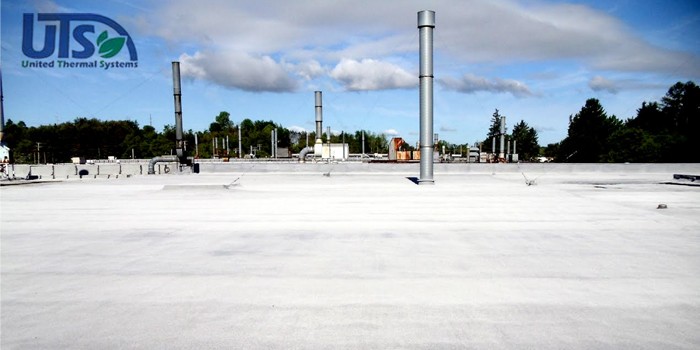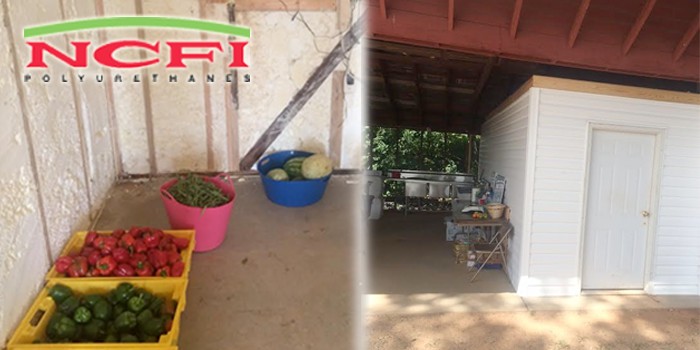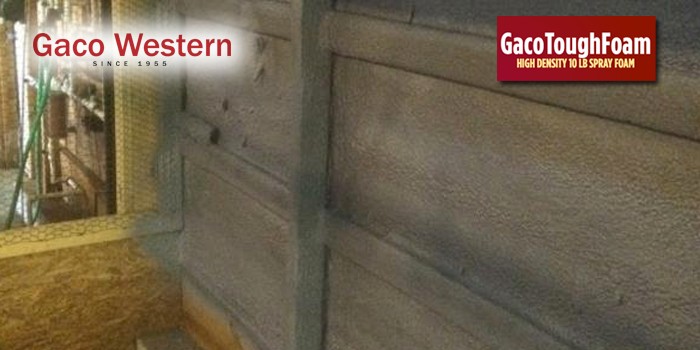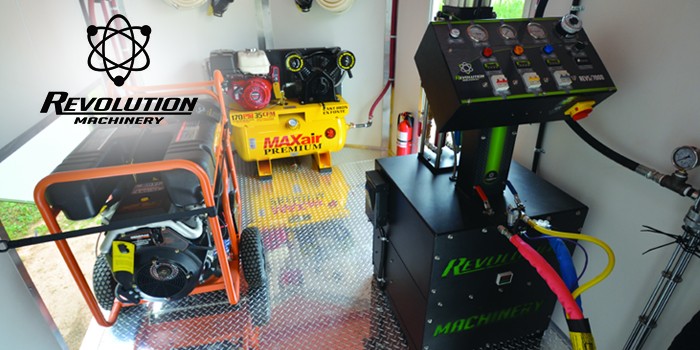Spray Foam Helps Turn Shipping Container Into Must-Visit Dining Destination
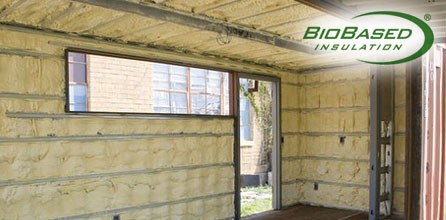
AUSTIN, TX - June 8, 2011 – In a town known for its quirky, eclectic culture, using spray foam insulation to transform a shipping container into one of the best food trailers in town can still get people talking.
Food trailers are a big part of Austin’s culture. These restaurants on wheels offer quality, fresh food and add variety to the local dining options. Victoria Davies and Dan Bereczki wanted to open a food trailer, but they wanted to make it different from the others—not just in the food that it served but in the way it was constructed.
“The clients are friends of mine, and we’d been discussing shipping container-based projects for some time before they approached me with the idea to do a container café,” said Mark Meyer with DesignSTUDIO.
Meyer worked with Davies and Bereczki to design the café using a 20-foot shipping container. The completed 160-square-foot food trailer, called La Boite (“the box”) utilizes green building practices and recycled or refurbished equipment.
“Everything in the project is either recycled, reused or a green product,” said Bereczki.
Dan Amon with BioTex Foam Insulation insulated Le Boite with BioBased 1701®, a closed cell spray foam insulation from BioBased Insulation®.
“Closed cell insulation was the right choice for the project because it’s a denser product,” said Amon. “We had a limited amount of space for the insulation, and this allowed us to get the highest R-value in the smallest space.”
The product is GREENGUARD Certified for Children and Schools, which means it meets strict indoor air quality guidelines. The insulation is made by incorporating a soy-based polyol as a replacement for a portion of the petroleum that is typically used in spray foam. The finished product has 16% bio-based content.
“It’s hard to say whether they’ve actually realized any efficiency benefits from the foam because the unit is almost always open to the elements when they are in operation, but it does stay comfortable in the Austin heat,” Meyer said. “In the winter, the front glass wall is often closed and the interior stays comfortable then too.”
La Boite opened in November 2010, and it has received wide acclaim, not just for its fresh pastries and locally roasted coffees, but for its design. Conde Nast, The New York Times and Bon Appetit are just some of the publications that have taken note of the environmentally friendly café. Zagat named it one of their 10 Strangest Restaurant Locations earlier this year.
In fact the concept has worked so well that two additional La Boite trailers have been added along with a new concept for Davies and Bereczki called Sushi Box. Meyer designed these new food trailers, and Amon also insulated them with BioBased Insulation®.
With the new Sushi Box trailer, the insulation is more important. The sushi is prepared on site, so unlike La Boite, Sushi Box stays closed and climate controlled. This keeps the customers and chefs cool in the Austin heat and the fresh food at the right temperature. BioBased Insulation® seals and insulates the trailer, which allows the owners to efficiently and effectively control the temperature.
For more information about BioBased Insulation®, visit www.biobased.net. Photos of these projects are available at www.facebook.com/BioBasedInsulation.
About BioBased Insulation®
BioBased Insulation® is committed to enabling sustainability in the world’s structures by developing and marketing performance-tested spray foam insulation products through a network of approved contractors. BioBased Insulation® is manufactured by BioBased Technologies®, which also manufactures the Agrol® family of soy-based polyols. The company is focused on developing and marketing safe products that reduce the use of non-renewable resources by integrating renewable ingredients or by improving energy efficiency.
Disqus website name not provided.





